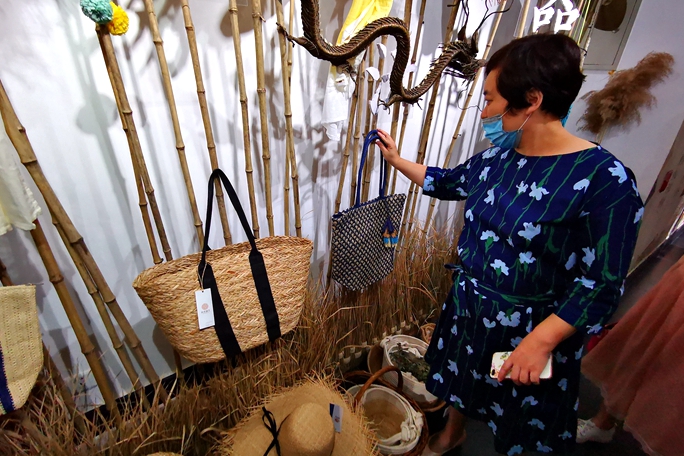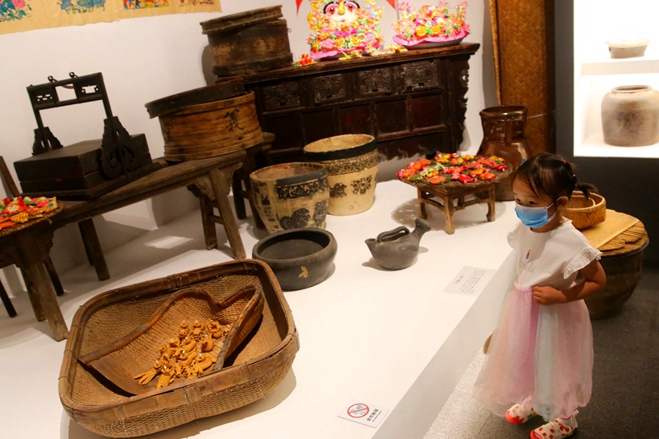This illness shows me how precious life is
Pang Jihong, 47, from Shandong province, cares for her 46-year-old husband, who has amyotrophic lateral sclerosis.
When my husband's illness was confirmed in 2015, I couldn't control myself. I burst into tears in the toilets of Peking University Third Hospital. After, I put on some lipstick and pretended to be calm.
The same day, we met another ALS patient. He almost collapsed when he heard his "death sentence". My husband, an optimist, comforted him for almost an hour, and they both laughed.
How brave they were to laugh at death. Touched and encouraged, from that moment I was determined to face life's hardships with my husband.
During our stay in Beijing, I accompanied him around the capital. At the time, he could walk with my help. I thought "Let me be his crutches in the future". As long as he could sit in a wheelchair, I took him around.
Our daughter was preparing for the college entrance examination, so I told her that her dad's hips hurt from playing basketball and he had to use a wheelchair.
I hid my husband's condition from my parents-in-law and other relatives. We only told them the news at a family reunion dinner after our daughter was admitted to her dream university in July 2016.
In the months of shouldering the burden alone, my hair started going gray. I want to look pretty, so my hair can be dyed, but how can my husband's illness be treated?
He took medicine - both Chinese and Western - as though eating meals, but the disease developed quickly. In November 2016, he had a tracheotomy. Since then, he has been in bed, unable to speak.
My heart bled when I saw him in the intensive care unit. He used to be a strong man, like an athlete, and enjoyed ping-pong and games. Now, he can only move one finger.
He considered assisted suicide because he was concerned about medical costs being a burden on the family. I told him I would not help anyone to give up their life, and that life is both a responsibility and hope. I told him his life is still meaningful to the family.
He uses an eye tracker on the computer to read the news, watch sports and "chat". He feels happy, which has improved his appetite. He has five meals a day via a tube, taking 500 milliliters at each meal, an increase from the original 300ml. His complexion is healthier, and his hands, chest and back have more flesh.
His illness shows me how precious life is and how deep our love is. Sometimes I sing and dance for him, or make jokes. When I have to go out, he sends me messages saying he is OK.
Our life is still happy. Although there is no cure yet, we still hope some magic will occur - at the very least, a better way of extending and improving patients' lives.
I have changed a lot. I now have the courage to support the whole family and can manage my emotions. I even feel younger. The pain inside has been transformed into a power that enables me to be an active person.
Pang Jihong spoke with Zhang Yi.

 Shandong Culture and Tourism Consumption Season
Shandong Culture and Tourism Consumption Season Culture, tourism sectors pick up in Shandong as epidemic wanes
Culture, tourism sectors pick up in Shandong as epidemic wanes

